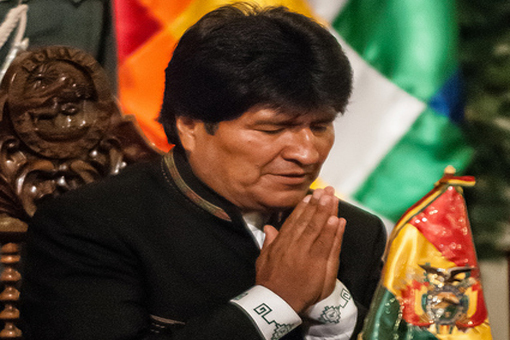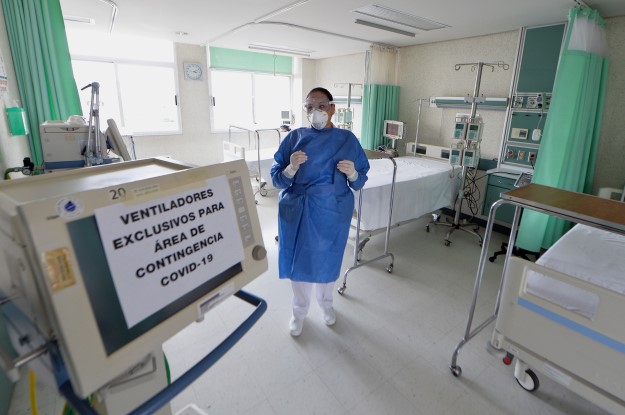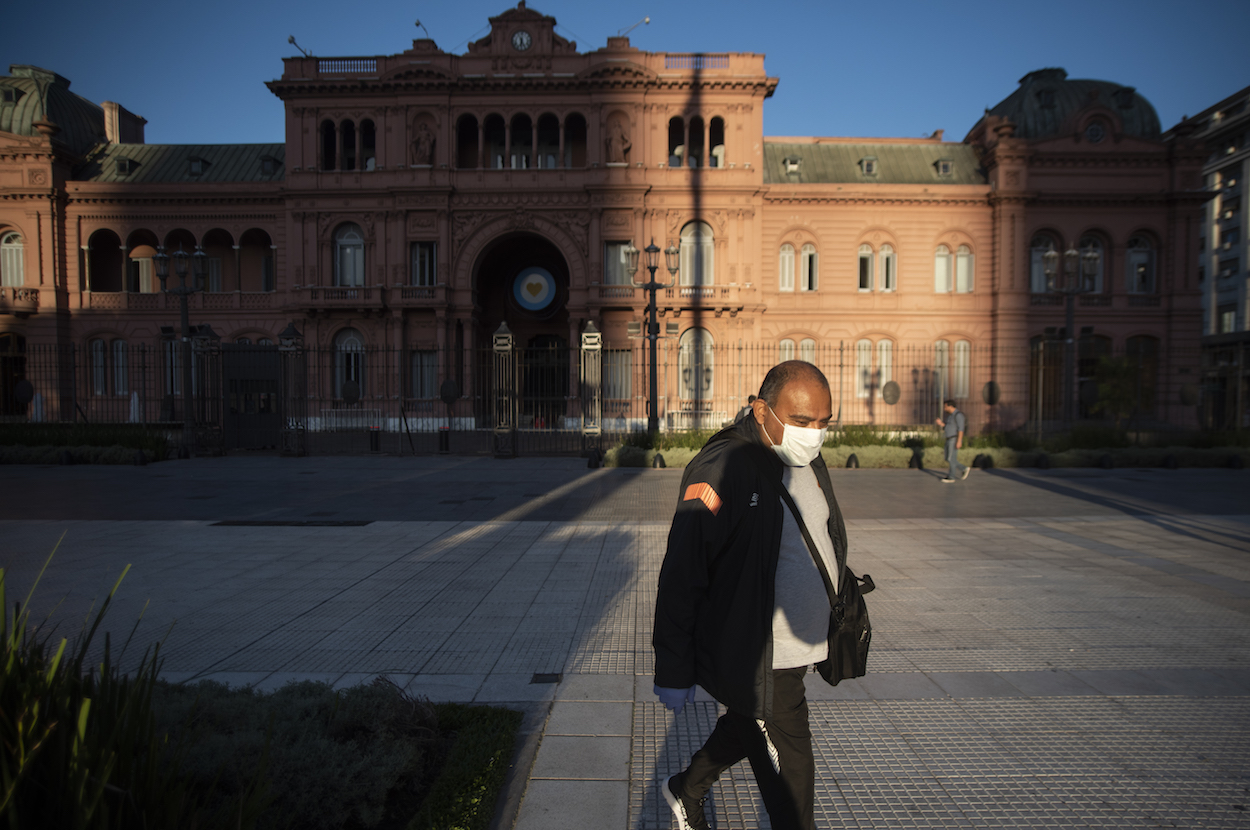It’s been an exceptionally good year for incumbents in Latin America.
Since June, Colombia’s Juan Manuel Santos, Bolivia’s Evo Morales and Brazil’s Dilma Rousseff each won their respective presidential contests. Rousseff’s late October re-election will give her center-left Partido dos Trabalhadores (Workers’ Party—PT) a fourth consecutive term in office.
As it turns out, it’s been an exceptionally good few decades for incumbents in Latin America. In particular, Rousseff’s re-election catalyzed a round of hand-wringing about the power of incumbency across the region. For example, Daniel Lansberg-Rodriguez, writing in The Financial Times, sounds a five-bell alarm over the “plague” of “imperial and eternal presidential tenures,” but he is hardly the only commentator to voice concerns.
Yet among the problems facing Latin American governance, incumbent re-election rates should not necessarily rank among the top tier of governance worries when there’s still so much work to be done to combat corruption, inequality and poverty.
The re-election norm isn’t as strong as it sounds.
Only two Latin American presidents have lost re-election bids in the past 32 years. That includes the unlucky Dominican president Hipólito Mejía, who lost to a former president in 2004. But it also includes Nicaraguan Daniel Ortega, the Sandinista leader who launched a comeback after his 1990 re-election loss, and who shows no signs of relinquishing power since reclaiming the presidency in 2007.
But this line of analysis belies the nature of democracy in the region. Many Latin American countries either limit officials to a single presidential term (such as Mexico and Honduras) or prohibit consecutive terms (such as in Chile and Uruguay). That means that often, Latin American presidents that may have lost re-election did not—because they simply never had the chance to run. It’s hard to believe, for example, that former Mexican President Felipe Calderón could have won another term if he had been eligible to do so in 2012. The same goes for Peru’s Alan García in 2011, Chile’s Sebastián Piñera in 2013 and Costa Rican president Laura Chinchilla in 2014.
Chinchilla’s Partido Liberación Nacional (National Liberation Party—PLN), seeking a third consecutive term in office, performed so poorly in Costa Rica’s February elections this year that its candidate, San José Mayor Johnny Araya, withdrew from the runoff because he faced such insurmountable odds. Term limits, by the way, have not stopped corruption in Costa Rica, where two former presidents have been sentenced to prison since 1990 and Chinchilla presided over a cascade of corruption scandals. And that’s in a country with such high levels of development that it is on the verge of winning membership in the OECD.
Democratic competition is rising, not declining, across Latin America.
Incumbent victories in Brazil and Colombia, the two largest economies of South America today, are also much more fragile than they appear. Rousseff only narrowly defeated challenger Aécio Neves, and her margin of victory was the smallest of any presidential election since the end of Brazil’s military dictatorship in 1985.
Santos actually lost Colombia’s first-round vote in May to the more conservative Óscar Iván Zuluaga, who had threatened to shut down talks between the Santos government and the leftist Fuerzas Armadas Revolucionarias de Colombia (Revolutionary Armed Forces of Colombia—FARC) that have destabilized the country for a half-century. More notably, the country’s March parliamentary elections transformed the Colombian Congress from a rubber-stamp chamber into a much stronger check on presidential power.
In both countries, democratic competition is on the rise. Even in countries lacking truly fair elections, such as in Venezuela, Henrique Capriles nearly defeated President Nicolás Maduro in April 2013, despite the widespread institutional advantages from which Maduro benefitted after over a decade of chavismo.
Term limits aren’t necessarily good for policymaking.
It’s worth questioning the real value that strict term limits provide today, because they immediately force a president into lame-duck status from virtually the moment of inauguration. Incumbents often have perfectly valid reasons to desire re-election, including continuity of policy and the ability to enact and develop long-term legal, social and economic reforms. For example, the runoff between Uruguay’s presidential contenders on November 30 (in which, yes, a former president, Tabaré Vázquez, is the odds-on favorite) will determine the fate of landmark legislation on marijuana legalization.
Why, for example, shouldn’t Panamanians have had the opportunity to re-elect outgoing President Ricardo Martinelli earlier this year? By closing the path for the popular Martinelli to develop a second-term agenda, his wife, Marta Linares de Martinelli, instead joined the ticket of José Domingo Arias, the center-right candidate vying to succeed Martinelli. The Arias campaign lost (to the incumbent vice president), but the artificiality of term limits forces leaders like Martinelli to choose between two unsavory evils—either walk away from his administration’s policy priorities, or undermine the spirit of term limits and wider democratic norms by alternating power with his spouse.
Though Bolivia’s Morales easily won re-election earlier this month, for many reasons, critics frown upon the way in which he pushed forward for a third term, despite the 2009 constitution’s two-term limitation. Morales, who promulgated the new constitution, argues that his initial election in 2006 came under the old constitution, so his “first” term under the new constitution instead began in 2010, making him eligible for re-election in 2014. It’s a creative interpretation, perhaps, but it is essentially no more or less unscrupulous than the machinations of former New York City Mayor Michael Bloomberg, who massaged the New York City Council into permitting him a chance at a third consecutive term as well.
Fluid party systems aren’t necessarily a sign of democratic weakness, either.
It’s true that party identification is weakening throughout the region, and that many successful political campaigns are personality-based. But that’s not necessarily a bad thing, either. The region certainly didn’t benefit from the civil wars of the 19th century that stemmed from strict competition between alternative conservative and liberal sects. The breakdown of long-standing political norms, such as the end of the 71-year monopoly of the Partido Revolucionario Institucional (Institutional Revolutionary Party—PRI) has accelerated the development of a more robust political marketplace at both the national and, increasingly, state and local levels in Mexico. The rise of leftist alternatives in countries like Paraguay, Bolivia, Uruguay and Honduras have given voice to previously powerless groups to demand labor protections, respect for Indigenous rights, greater women’s rights and a more progressive approach to LGBT equality.
If campaigns are waged today over personal style and cosmetic considerations, it may be that—excepting a few notable outliers (Cuba, Nicaragua and Venezuela)—regional parties are today competing over fewer substantive differences. Under the “Lula model,” Brazil and other Latin American countries have successfully paired business-friendly and prudent macroeconomic policy with greater social welfare programs that are rapidly eliminating poverty and hunger. It’s hard, for example, to find much daylight between the policies of Peruvian president Ollanta Humala and those of his immediate, more “neoliberal” predecessors, though you wouldn’t know it from the histrionics of the 2011 presidential runoff between Humala and Keiko Fujimori, which author Mario Vargas Llosa famously summarized as a choice between cancer and AIDS.
That the rigid ideological battles of Cold War-era politics—pitting autocratic Soviet-style socialists against cruel right-wing military dictatorships—have subsided into slick contests based on slogans and personalities is probably cause for celebration among many Latin Americans who suffered through death squads and never-ending revolutions. That’s especially so as Latin America’s middle class continues to rise on the strength of better health care, education and infrastructure and the decline of violent crime and economic inequality.






